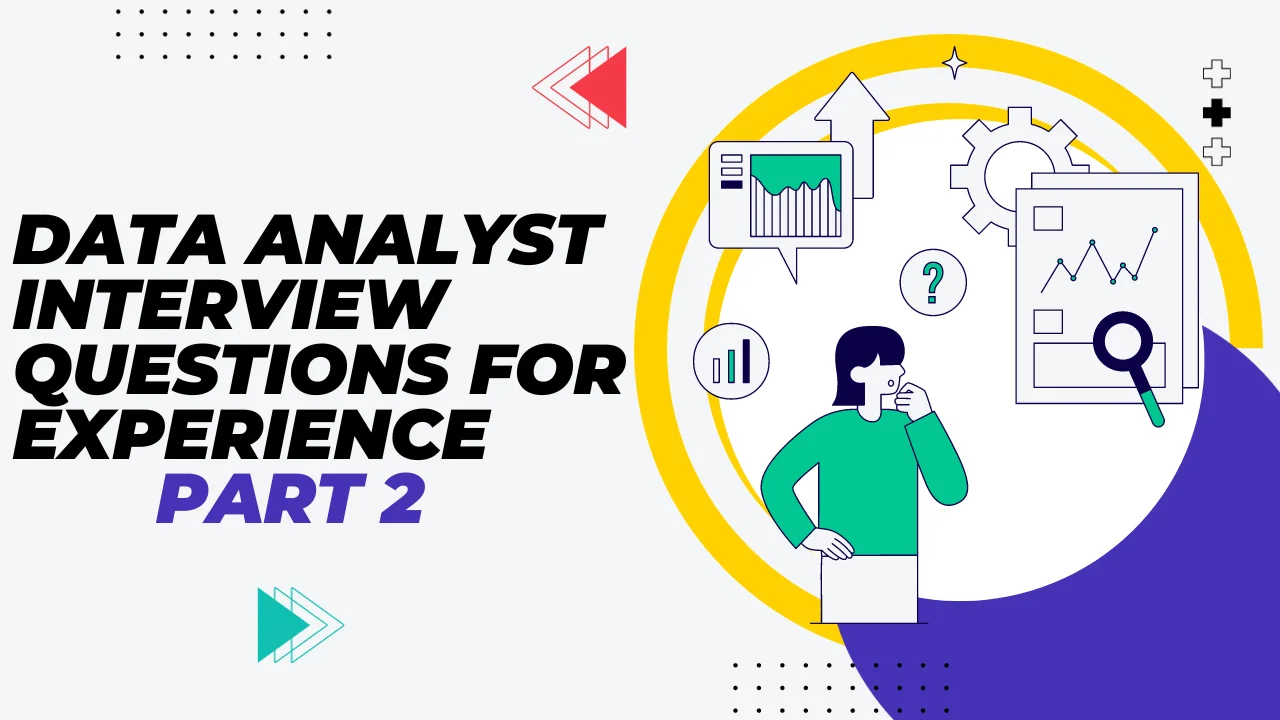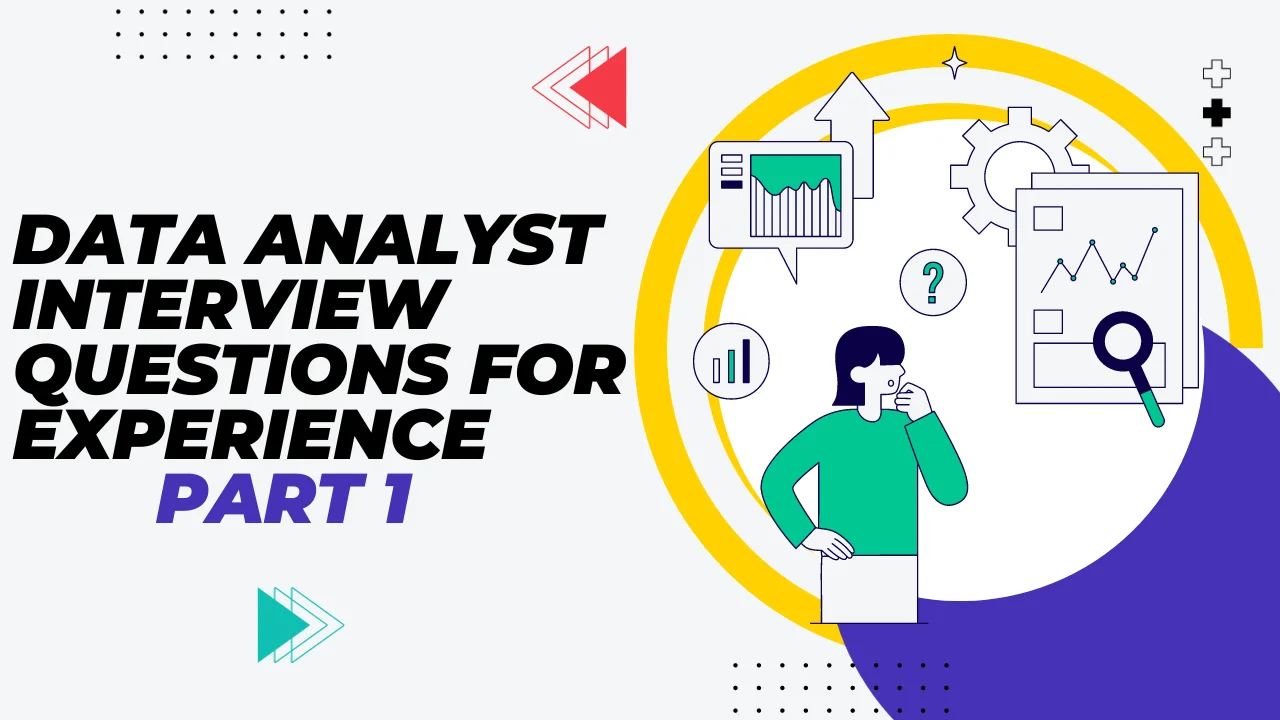Data Analyst Interview Questions for Experienced Part - 2

9. Explain Hierarchical clustering.
Hierarchical clustering is an approach within cluster analysis that constructs a cluster hierarchy. It starts by considering each data point as a separate cluster and then merges the closest clusters, continuing until all points are in a single cluster or until a certain criterion is met. This method forms a tree-like structure known as a dendrogram, illustrating the relationships between clusters.
10. What do you mean by logistic regression?
Logistic regression, a statistical technique, specializes in binary classification. It forecasts event probability by fitting data to a logistic curve. It’s commonly used in various fields, including medicine for disease diagnosis, marketing for predicting customer behaviour, and more.
11. What do you mean by the K-means algorithm?
K-means is a popular clustering algorithm used for partitioning data into K clusters. It works by iteratively assigning data points to the nearest cluster centroid and recalculating the centroids until convergence. It’s efficient but requires specifying the number of clusters beforehand.
12. Outline the distinctions between variance and covariance.
Variance measures the dispersion of a single random variable from its mean, while covariance measures the extent to which two random variables change together. Variance is a measure of how much a single variable deviates from its mean, while covariance indicates the relationship between two variables (whether they increase or decrease together).
13. Enumerate the benefits of employing version control.
Version control systems like Git allow tracking changes, collaborating seamlessly, reverting to previous versions, and maintaining a history of modifications. They facilitate teamwork, reduce the risk of errors, enable experimentation without consequences, and ensure a reliable and organized development process.
16. Mention some of the statistical techniques that are used by Data analysts.
Data analysts use techniques like regression analysis, hypothesis testing, ANOVA (Analysis of Variance), time series analysis, clustering, factor analysis, and machine learning algorithms like decision trees and neural networks for predictive modeling, among others.
17. What's the difference between a data lake and a data warehouse?
A data lake is a vast pool of raw data stored in its native format until it’s needed. It can hold structured, unstructured, or semi-structured data, enabling storage of large volumes of data without the need for pre-defined schemas.
In contrast, a data warehouse is a structured repository that stores structured and processed data, typically cleaned and organized for easy querying and analysis. It’s designed for high-speed queries and business intelligence reporting, using a schema optimized for querying and analysis.
In conclusion,
Data Analyst Interview Questions for Experienced: Part – 2″ delves deeper into advanced concepts, equipping seasoned professionals with insightful queries and scenarios. This resource delves into nuanced analytics methodologies, statistical approaches, and data management, ensuring a comprehensive preparation to excel in challenging roles. It caters to experienced individuals, providing a robust understanding of the intricacies within data analysis, enriching their ability to navigate complex data landscapes with confidence and expertise.
Ready to take your Data Analytics skills to the next level? Explore our top-notch Power BI Course in Chennai. Our expert instructors and hands-on approach ensure that you not only ace interviews but also thrive in real-world scenarios. To kickstart your journey to Data Analytics excellence, contact us at +91 9655-333-334. Secure your future today with the Best Data Analytics Courses In Chennai. Don’t miss out on the chance to propel your career forward!






